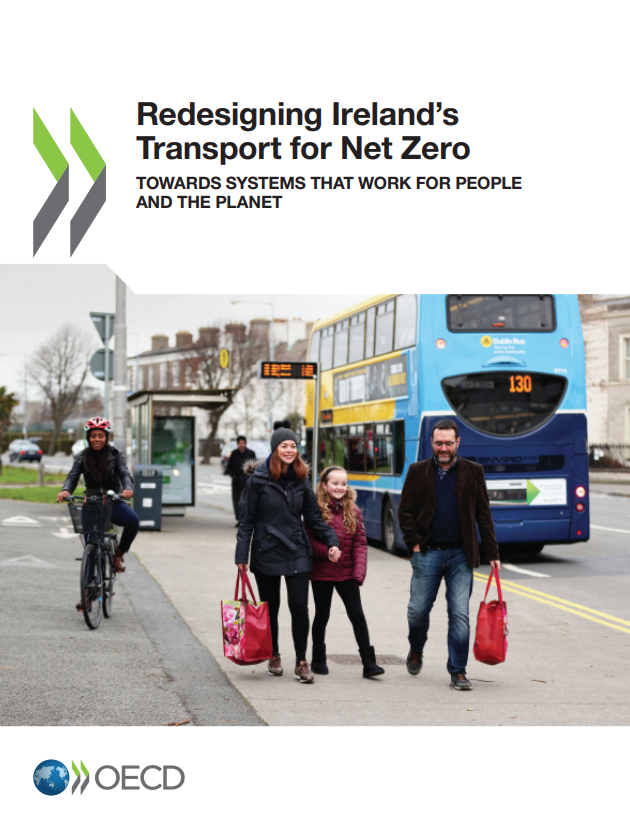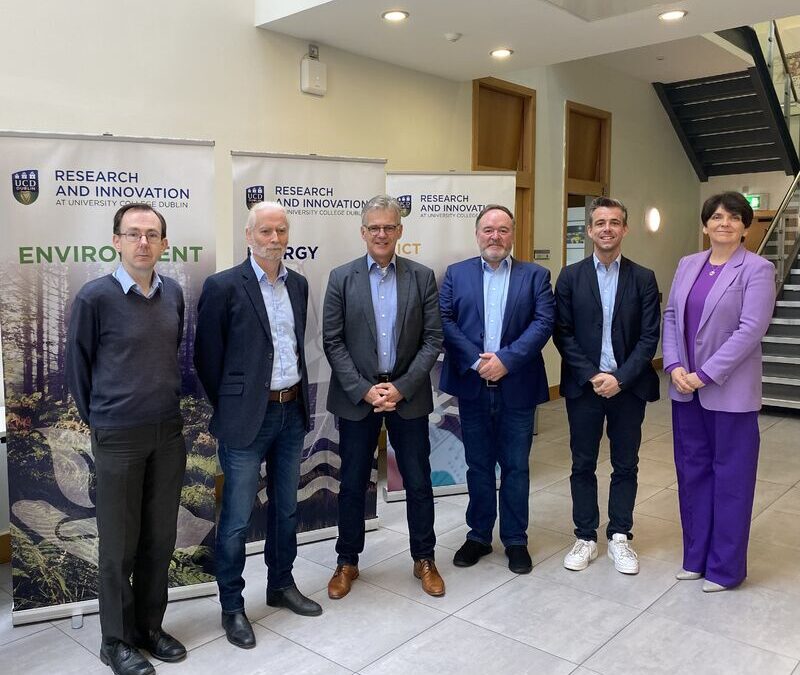Why are bottom-up approaches to renewable energy more acceptable for communities than top-down approaches?
Assoc. Prof. Geertje Schuitema gives an overview of the findings and significance of her research group’s recent publication on Just Transition in the publication Energy Research & Social Science.
“Bottom-up approaches strengthen collective psychological ownership and perceptions of place-technology fit among communities where renewable energy projects are being developed”
Assoc. Prof. Geertje Schuitema, NexSys academic
Vanja Međugorac and Geertje Schuitema.
Why is bottom-up more acceptable than top-down? A study on collective psychological ownership and place-technology fit in the Irish Midlands.
DOI: https://doi.org/10.1016/j.erss.2022.102924
It is well known that communities tend to policies proposal by government or industry (so called top-down governance approaches) usually less acceptable than policy proposals that are developed by communities themselves (so-called bottom-up governance approaches).
The aim of this paper was to understand why this is the case. We did a survey study in Lanesborough, a town in the Irish Midlands, which is in transition from a region that heavily depends on fossil fuel production (peat) and is earmarked to become a region for renewable energy.
Community responses
We compared community responses of two existing plans for future development of the region: the development of wind energy which was proposed by Bord na Mona (top-down) and the rewetting of the peatlands including a solar park (bottom-up).
Our findings
We found that the bottom-up approach was more acceptable for communities for two reasons.
-
- Firstly, bottom-up approach resulted in a feeling of collective psychological ownership, that is, communities feel that these plans and developments are “theirs”.
- This feeling of psychological ownership, in turn, meant that communities felt that the development plans fitted much better in the community, which is why they found them more acceptable.
These results suggest that it is important to structure governance processes in such a way that it fosters collective psychological ownership over renewable energy developments.
How can this be achieved ? This can for example be achieved by using local knowledge and ensuring that public engagement and participation is part of the governance process.
Academic Profile: Assoc. Prof. Geertje Schuitema https://people.ucd.ie/geertje.schuitema
Details of Publication:
Vanja Međugorac, Geertje Schuitema,
Why is bottom-up more acceptable than top-down? A study on collective psychological ownership and place-technology fit in the Irish Midlands.
Energy Research & Social Science, Volume 96, 2023, 102924, ISSN 2214-6296, https://doi.org/10.1016/j.erss.2022.102924. (https://www.sciencedirect.com/science/article/pii/S2214629622004273)
Abstract: Previous research has shown that bottom-up governance approaches enjoy higher community acceptance than top-down approaches. However, it is unclear why this is the case. We investigated this in a survey-based field study in a community in the Irish Midlands that is transitioning away from fossil fuel-based (peat) based energy generation to a renewable energy system. Community members evaluated two scenarios that were part of the actual public debate, that is – a scenario proposed by the government and industry (a top-down scenario), and a scenario proposed by some local community members (a bottom-up scenario). The results showed that, compared to the top-down scenario, the bottom-up scenario was more acceptable, community members felt stronger collective psychological ownership over it, and it was perceived as more place-fitting. Mediation analysis confirmed that higher community acceptance of the bottom-up scenario compared to the top-down one was mediated by stronger feelings of collective psychological ownership and perceptions of place-technology fit community members had regarding the proposed bottom-up development than the top-down one. These results imply that community acceptance is higher under bottom-up governance approaches as they strengthen collective psychological ownership and perceptions of place-technology fit among communities where renewable energy projects are being developed.
Keywords: Community acceptance; Top-down governance; Bottom-up governance; Collective psychological ownership; Place-technology fit; Renewable energy developments




